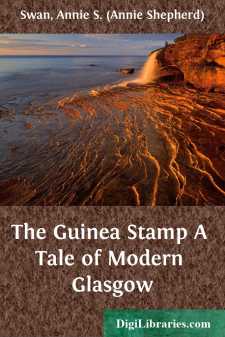Categories
- Antiques & Collectibles 13
- Architecture 36
- Art 48
- Bibles 22
- Biography & Autobiography 813
- Body, Mind & Spirit 142
- Business & Economics 28
- Children's Books 17
- Children's Fiction 14
- Computers 4
- Cooking 94
- Crafts & Hobbies 4
- Drama 346
- Education 46
- Family & Relationships 57
- Fiction 11829
- Games 19
- Gardening 17
- Health & Fitness 34
- History 1377
- House & Home 1
- Humor 147
- Juvenile Fiction 1873
- Juvenile Nonfiction 202
- Language Arts & Disciplines 88
- Law 16
- Literary Collections 686
- Literary Criticism 179
- Mathematics 13
- Medical 41
- Music 40
- Nature 179
- Non-Classifiable 1768
- Performing Arts 7
- Periodicals 1453
- Philosophy 64
- Photography 2
- Poetry 896
- Political Science 203
- Psychology 42
- Reference 154
- Religion 513
- Science 126
- Self-Help 84
- Social Science 81
- Sports & Recreation 34
- Study Aids 3
- Technology & Engineering 59
- Transportation 23
- Travel 463
- True Crime 29
The Guinea Stamp A Tale of Modern Glasgow
Description:
Excerpt
CHAPTER I.
FATHERLESS.
t was an artist's studio, a poor, shabby little place, with a latticed window facing the north. There was nothing in the furnishing or arrangement of the room to suggest successful work, or even artistic taste. A few tarnished gold frames leaned against the gaudily-papered wall, and the only picture stood on the dilapidated easel in the middle of the floor, a small canvas of a woman's head, a gentle Madonna face, with large supplicating eyes, and a sensitive, sad mouth, which seemed to mourn over the desolation of the place. The palette and a few worn brushes were scattered on the floor, where the artist had laid them down for ever. There was one living creature in the room, a young girl, not more than sixteen, sitting on a stool by the open window, looking out listlessly on the stretch of dreary fenland, shrouded in the cold and heavy mist. It was a day on which the scenery of the fen country looked desolate, cheerless, and chill. These green meadows and flat stretches have need of the sunshine to warm them always. Sitting there in the soft grey light, Gladys Graham looked more of a woman than a child, though her gown did not reach her ankles, and her hair hung in a thick golden plait down her back. Her face was very careworn and very sad, her eyes red and dim with long weeping. There was not on the face of the earth a more desolate creature than the gentle, slender girl, the orphan of a day. At an age when life should be a joyous and lovely thing to the maiden child, Gladys Graham found herself face to face with its grimmest reality, certain of only one thing, that somewhere and somehow she must earn her bread. She was thinking of it at that moment, with her white brows perplexedly knitted, her mouth made stern by doubt and apprehension and despair; conning in her mind her few meagre accomplishments, asking herself how much they were likely to bring in the world's great mart. She could read and write and add a simple sum, finger the keys of the piano and the violin strings with a musicianly touch, draw a little, and dream a great deal. That was the sum total of her acquirements, and she knew very well that the value of such things was nil. What, then, must become of her? The question had become a problem, and she was very far away yet from its solution.
The house was a plain and primitive cottage in the narrow street of a little Lincolnshire village—a village which was a relic of the old days, before the drainage system was introduced, transforming the fens into a fertile garden, which seems to bloom and blossom summer and winter through. Its old houses reminded one of a Dutch picture, which the quaint bridges across the waterways served to enhance. There are many such in the fen country, dear to the artist's soul.
John Graham was not alone in his love for the wide reaches, level as the sea, across which every village spire could be seen for many a mile. Not very far away, in clear weather, the great tower of Boston, not ungraceful, stood out in awe-inspiring grandeur against the sky, and was pointed out with pride and pleasure by all who loved the fens and rejoiced in the revived prosperity of their ancient capital....



